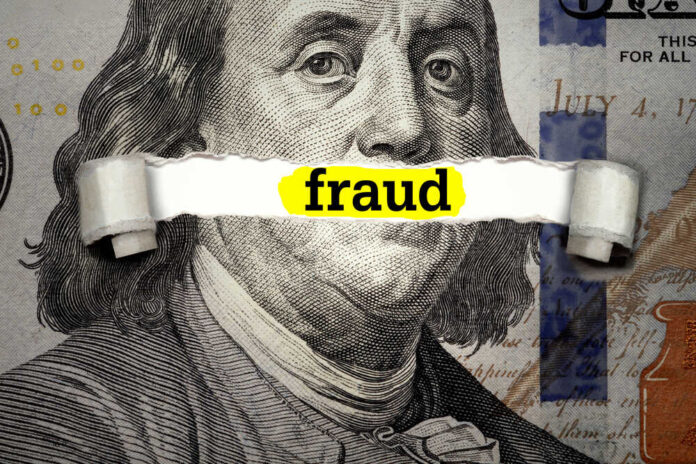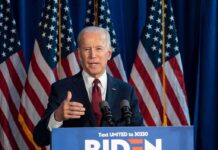
Arizona’s massive $2.7 billion Medicaid fraud scheme targeting Native American addiction treatment programs has resulted in 22 more indictments, with authorities recovering only a fraction of the stolen taxpayer money as criminals flaunt their ill-gotten gains through lavish homes and offshore accounts.
Key Takeaways
- An Arizona grand jury has indicted 22 individuals and entities involved in a Medicaid fraud scheme targeting addiction treatment programs for Native Americans.
- The state has recovered only about 5% ($125 million) of the estimated $2.7 billion lost through fraudulent behavioral health providers and sober living homes.
- Fraudulent operators billed for services never provided, falsified records, and even continued billing for deceased clients.
- Over 100 individuals have been indicted in the scheme, which exploited the American Indian Health Program through weak oversight systems.
- Arizona Attorney General Kris Mayes cites significant challenges in asset recovery as criminals have hidden money offshore or purchased luxury items.
Massive Fraud Operation Targeting Native Americans Unveiled
The scale of Medicaid fraud targeting Native American communities in Arizona has reached staggering proportions. An Arizona grand jury recently indicted 22 more individuals and entities connected to a complex scheme that siphoned approximately $2.7 billion from the state’s Medicaid system through fraudulent addiction treatment programs. The charges include money laundering, theft, conspiracy, fraudulent schemes, patient referral fraud, and forgery, representing just one portion of a much larger criminal enterprise that has victimized vulnerable populations seeking addiction treatment.
“An Arizona grand jury has indicted 22 individuals and entities linked to a massive Medicaid fraud scheme involving sober living homes,” said Arizona Attorney General Kris Mayes.
The indictments follow an extensive investigation that has already resulted in over 100 individuals being charged in connection with the scheme. Investigators revealed that fraudulent behavioral health providers and sober living homes deliberately exploited the American Indian Health Program, a component of Arizona’s Medicaid system specifically designed to serve Native American communities. These criminal operators capitalized on weak oversight and billed for services never delivered, resulting in the depletion of resources meant for legitimate addiction treatment.
Recovery Challenges: Following the Money Trail
Despite substantial investigative efforts, Arizona officials have recovered only about 5% of the stolen funds, amounting to approximately $125 million. The recovery process faces significant hurdles as fraudsters have taken deliberate steps to conceal their ill-gotten gains. Attorney General Mayes has expressed frustration with the challenges of tracking down and reclaiming these assets, which have been cleverly dispersed through various channels to evade detection and recovery efforts.
“It’s hard, because what happens is these … Criminals get the money, they buy lavish homes, they buy multiple expensive cars, they hide the money offshore, they spend the money in ways that are unrecoverable,” said Attorney General Kris Mayes.
The financial impact of this fraud extends beyond monetary loss. The scheme has severely disrupted legitimate behavioral health services, affecting an estimated 11,000 patients who were enrolled in fraudulent programs. The Arizona Health Care Cost Containment System (AHCCCS), which administers the state’s Medicaid program, has been forced to suspend hundreds of providers and delay payments, creating ripple effects throughout Arizona’s behavioral health industry and leaving many patients without access to necessary services.
Systemic Failures and Ongoing Reform Efforts
Investigations have revealed alarming systemic weaknesses that enabled this fraud to flourish. From 2019 to 2023, AHCCCS allowed approximately 13,000 unlicensed providers to operate within the system, creating an environment ripe for exploitation. Many of these providers targeted tribal communities specifically, setting up operations that billed for services never rendered while legitimate treatment needs went unaddressed. Some fraudulent operations even continued billing for clients who had died or been inappropriately admitted to their programs.
“It’s time to stop protecting bad actors or even those people who continue to allow bad actors to keep coming back,” said State Sen. Theresa Hatathlie.
In response to these revelations, Arizona officials have implemented various reforms, including new legislation requiring sober living homes to report resident deaths and initiatives to strengthen oversight mechanisms. Additionally, the state has established a $6 million grant program specifically targeting the fraud’s impact on tribal communities. The U.S. Department of Justice has also launched parallel investigations, signaling federal involvement in addressing this extensive criminal enterprise that has drained taxpayer resources and undermined critical healthcare services for some of Arizona’s most vulnerable populations.































